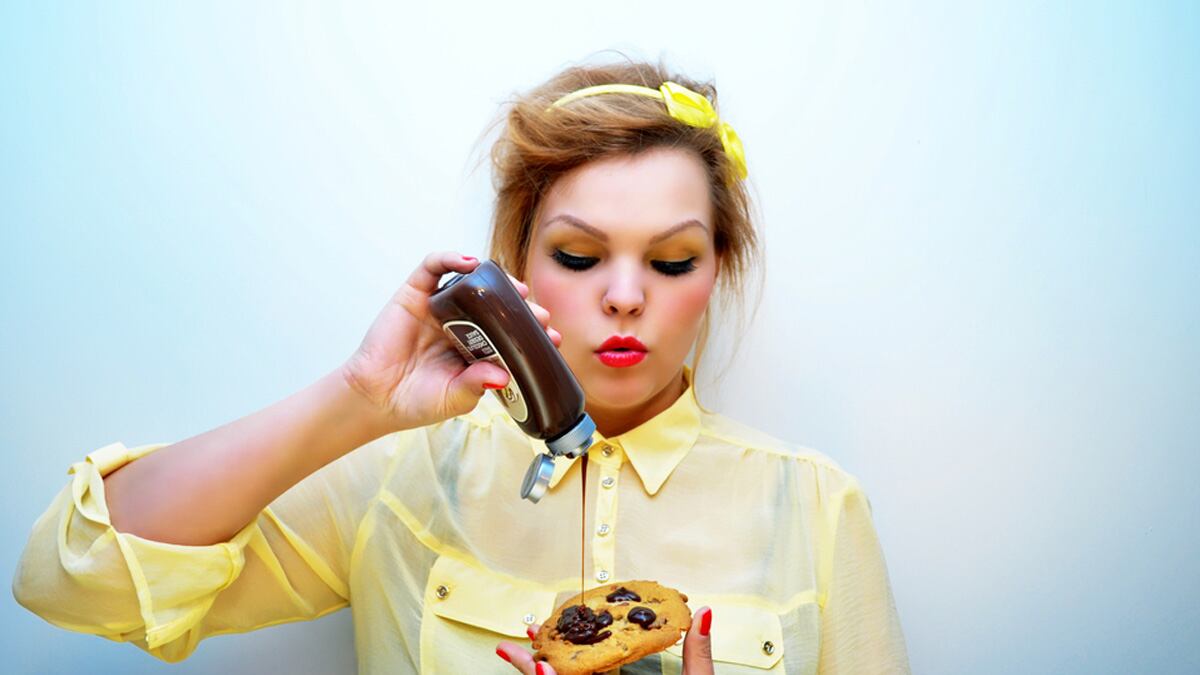
As children, we were rarely given ‘puddings’. Instead, at the end of a meal, we’d reach for the fruit bowl: tangerines, apples or a handful of grapes. Puddings were treats for birthdays and special occasions: chocolate cake, or jelly and ice-cream. We weren’t actually ‘taught’ this – it was obvious to us, even as young children, that fruit was healthier than sweets and biscuits.
Which is why I was surprised at the media furore over the latest health findings. Experts at University College London have studied the eating habits of 65,000 people over eight years and found that consuming seven to ten helpings of fruit and vegetables is linked to a 42% lower risk of death from all causes. Forget five-a-day, they say - we should be aiming for more like seven to ten servings per day.
But isn’t this obvious? Don’t we all know, instinctively, that broccoli is better for us than burgers? Isn’t it time to take responsibility?
Another day, another health debate. As someone who writes about disordered eating, weight and body image, I’m invited onto a radio discussion on the BBC Nolan show in Belfast, and I find myself arguing once again that we’re responsible for the choices we make, for the food we put in our mouths, and the levels of activity (or inactivity) in our daily lives.
The host, Stephen Nolan, talks candidly to listeners about his own battle with obesity. He’s on day 43 of a miserable 600-calorie-only crash diet: “I’m eating like a bloody bird,” he wails. He has shed around three stone over the past six weeks, but the diet is punitive in the extreme, and not sustainable in the long term.
Nolan, and the other journalist on the show, argue that it’s not their fault: “The louder the food police shout, the more they scare us into scoffing doughnuts…” Apparently the more information we receive, the more confused we get, and the more we resort to “fat-laden ready meals”.
Utter nonsense. I agree, of course, that health advice is alarmist, and increasingly contradictory. Fat goes in and out of fashion, high-protein diets have been declared as dangerous as smoking, and sugar as the latest ‘addictive’ substance that is killing us all. But adults know the difference between healthy produce (fresh, unprocessed) and unhealthy junk.
Forget the food police – what happened to common sense? When things go wrong, do you blame yourself or others? When you identify a problem in your life, do you fix it yourself, or do you point the finger at someone else? We’re seeing a dramatic rise in obesity globally, which cannot simply be blamed on the food police: in Northern Ireland where we were debating, two thirds of adults are overweight or obese, as are 25% of children aged 2 to 10. But still adults go on avoiding responsibility, shifting the blame to advertisers, supermarkets, or the ‘food police’.
Avoiding responsibility is easy, but ultimately pointless. Five years ago I gave up smoking. As any ex-smoker knows, there is nothing more tempting than others lighting up around you, the sight and smell of a cigarette, the habit, the urge. Instead of blaming other smokers, I simply avoided pubs, clubs – even coffee bars – until I was through the worst cravings.
This is called taking control. Because guess what? The real world is full of triggers, from super-slim models to ‘thinspiration’ websites, to female friends discussing the size of their thighs or their juice-only-day-on-day-off-fasting-detox. (After 10 years of anorexia I personally find this weight-and-body-obsession unhelpful, but I don’t blame them.)
Remember US consumers taking legal action against McDonalds for making them obese? In 2009 a former heavy smoker sued Philip Morris and was awarded $300 million.
But no-one forced them to eat or smoke. You don’t hear those who suffer from depression complaining that discussions about mental illness exacerbate their depression. What about cream cakes and cookies in supermarkets? Aren’t they triggering for those on a diet? Same with booze – it’s everywhere, but it’s still a personal choice. A friend of mine is recovering from alcoholism and she just has to grit her teeth at weddings. She does not demand that others abstain from alcohol; she accepts that it’s part of the culture we live in.
This question of accountability has interesting links with the theory of “locus of control.” Formulated by the psychologist Julian Rotter in the 1950s, “locus of control” refers to the extent to which people believe they have power over events in their lives. For example, when taking an exam, individuals with high internal locus of control tend to praise or blame their own abilities or actions, whereas those with high external locus of control blame an external factor such as the exam paper or the teacher.
Research has shown that internal locus of control improves physical and mental health and diverse conditions ranging from HIV, migraines, diabetes, kidney disease and epilepsy. In other words, taking responsibility is healthy. I’m sympathetic to anyone struggling with their weight or body image, but it doesn’t help to wallow in learned helplessness.
Giving up control, or saying: ‘it’s not my fault, I can’t help myself’ is a self-fulfilling prophecy. Speak to anyone who has beaten obesity, or made other significant life changes, and they’ll tell you how empowering it is. I think of my friend H, who recently got herself from 19 stone to 12 stone, having been overweight since childhood. She looks and feels amazing, and is now training for a triathlon.
Let’s not give in to the blame culture. Whether it’s working up a sweat dancing instead of dozing on the sofa, or swopping a burger for a Greek yogurt, being healthy is a brave decision. Like any other muscle, the more you exercise your willpower, the stronger it becomes.






